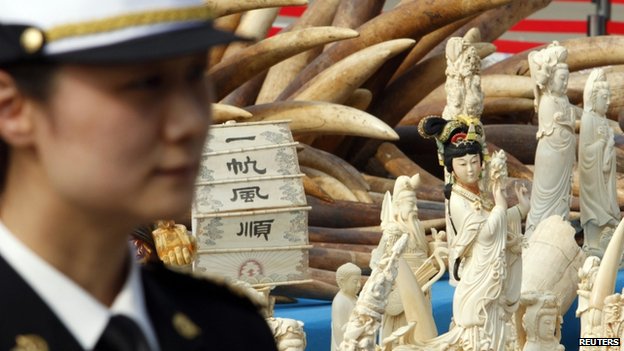Here in Austin, the Texas legislature is well into its biennial session. Amidst the thousands of bills that have been filed, one prominent bill has a strong wildlife conservation connection. In February Representative Eddie Lucio, III (D-Harlingen) filed HB 1579 that would ban commerce and transportation related to shark fins in Texas. … read more
Tanzanian travel
Over Spring Break, two other students and I traveled to Arusha, Tanzania to conduct some first person interviews for our ecotourism research (and relax as much as possible, it was Spring Break!). It was a big trip for me, since I had never been out of the country before. This… read more
Can tourism promote sustainable development and protect global wildlife?
How much is an elephant worth? Nothing, the entrance fee to the zoo, or the cost of a safari? How much are you willing to pay for save a rhino? And how much are we, as a society, willing to pay to save endangered species? Those questions have different answers;… read more
Lessons from elite interviews
This past week, I traveled to Washington, D.C. with three of my classmates to conduct elite interviews with U.S. government agency officials and NGOs to learn more about the nexus of wildlife crime and U.S. national security. This week was a learning experience in so many ways, and I thought… read more
The future of oil exploration and governance in the DRC
Virunga National Park is the oldest national park in Africa and is also a UNESCO World Heritage Site. Located in the Democratic Republic of Congo (DRC), the park borders Uganda and Rwanda. Virunga is rich in wildlife and fauna, having over 706 bird, 196 mammal, and 2,000 plant species. Although… read more
Militarizing Conservation
In a move that demonstrates how real the ongoing poaching crisis is, Kenya burned 15 tons of ivory on World Wildlife Day. 20-25,000 elephants are being illegally killed each year across Africa. Increasingly, governments have attempted to stop poaching by increasing the militarization of their conservation efforts. Many countries employ… read more
Loopholes in China’s Domestic Ivory Market
At the end of February of this year, China announced a one-year moratorium on ivory imports, stating that it will not be issuing import permits during this time. This move did little to appease the international conservation movement, which is more concerned with China’s domestic ivory market and circumvention of… read more
How to Reach the Minds (and Hearts) of the Chinese Audience
In Cameron Lagrone’s January post, she argues that “for an awareness campaign to be truly effective [it] must operate in the language of the target country, appeal to the culture of that country and use culturally relevant methods to reach the public.” Inspired by her words, I decided to explore… read more
Boat-to-Plate: Tracing Your Fish Like Never Before
Two months ago, President Barack Obama announced an ambitious plan to combat illegal fishing that will monitor the industry like never before. Ocean advocates hope that these presidential recommendations will be the first step towards a sustained effort to combat illegal, unreported, and unregulated (IUU) fishing by the United States. The… read more
Traffic sucks! (this time I don’t mean the rush-hour kind)
Wildlife trafficking is (and almost always has been) a huge problem in the world. Wildlife trade is the legal sale/transfer of wildlife and wildlife products, but trafficking is illegal — it involves endangered species, banned practices, or unsustainable take of wildlife. TRAFFIC (Wildlife trade monitoring network) is an organization that… read more





